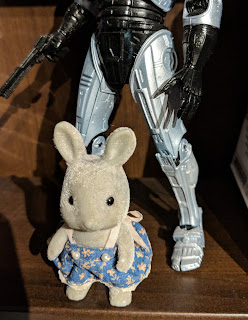The Appeal of the Concrete
Second in a series. Read the first post here.
I love it when books include small concrete details, such that I learn something independent of the story. This is more prevalent, and more universally enjoyed, in children's literature, but for me occurs elsewhere as well. Extra points if the activity or knowledge is useful in either historical recreation, or otherwise comes up in real life.
Some examples:
I only vaguely remember the book Five Children and It, but I remember that the kids had a trick to make themselves wake up at any particular time they chose. I couldn't get this to work for me as a kid, but it ensured that I never forgot the book.
Similarly, I don't recall being able to make maple candy as described in Little House in the Big Woods, but I may have ruined some maple syrup trying.
A YA historical fiction novel called Quest for a Maid I mostly remember for the main character using whole cloves for toothache.
Another YA book I loved as a young teen, A Rumor of Otters, taught me that you can make yourself breathe more quietly by imagining you're drawing the breath in from a long way away.
Details like these will sometimes keep a book present in my mind for years after reading. I mean, I didn't look up any of those examples. The effect is strongest when it connects the character or the story with a simple physical activity that seemed useful when I first read the book.
A couple of non-children's examples: Since the first time I read Guilty Pleasures, I sometimes think of it when I pull my keys out when coming home late. I don't have the problem of warning people lurking in my apartment, but I think of the book when I consciously prevent my keys from jingling as I walk up the street. And when I spoon coffee grounds, sometimes I think about Touchstone by Laurie R King, because there's a scene about how British soldiers made coffee during WWI.
This is mostly a characteristic of children's and YA literature, and it's probably a combination of personal taste and young life experience that determines which details of which books stay with us. As someone who did a lot more reading than anything else as a kid, anything I could learn from books was seized upon as a special knowledge. But I've asked around, and most people seem to have at least one book that stays in the mind not so much because of the character or story, but more hinged on the (seemingly) practical information hidden in the pages.



Comments
Post a Comment
FYI: Most comments are moderated, and will not appear immediately.